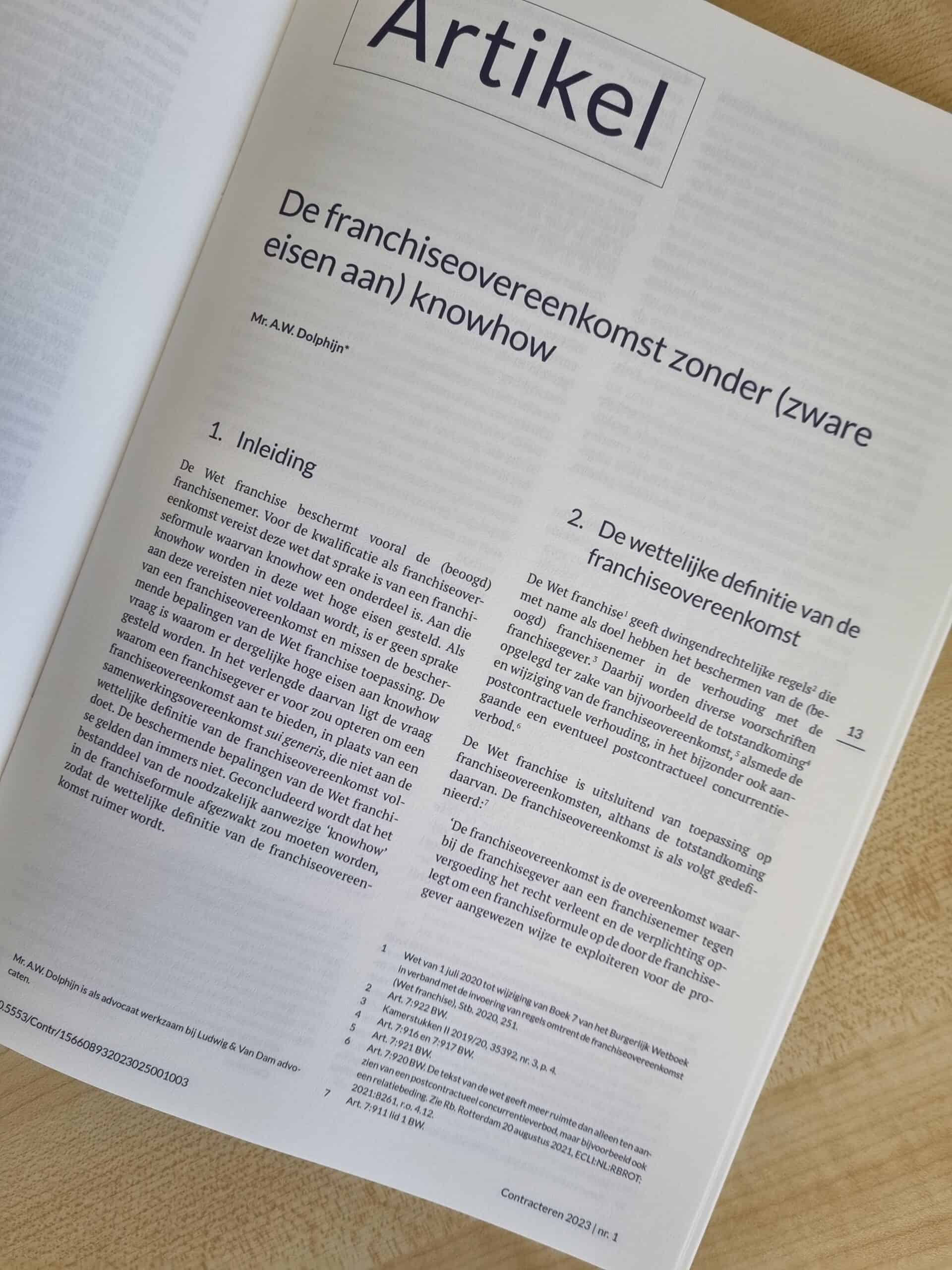The franchise agreement without (heavy demands on) know-how
In the 2023-1 edition of Contracting magazine, I published a contribution entitled: “The franchise agreement without (strict requirements for) know-how”.
For the qualification as a franchise agreement, the Franchise Act requires that there is a franchise formula of which know-how is a part. This law places high demands on this know-how. If these requirements are not met, there is no franchise agreement and the protective provisions of the Franchise Act are missing. The question is why such high demands are placed on know-how. It is concluded that the element of the necessarily present ‘know-how’ in the franchise formula should be weakened, so that the legal definition of the franchise agreement becomes broader.
The article can be ordered here from the publisher Boom Uitgevers.
Ludwig & Van Dam lawyers, franchise legal advice.
Do you want to respond? Then email to dolphijn@ludwigvandam.nl

Other messages
Interview Franchise+ – mrs. J. Sterk and AW Dolphijn – “Reversal of burden of proof in forecasts approved by court” – February 2018
The new Acquisition Fraud Act indeed appears to be relevant for the franchise industry, according to this article from Franchise+. Alex Dolphijn of Ludwig & Van Dam assists a franchisee in a
Article Franchise & Law No. 7 – Franchise agreement as general terms and conditions
Uniformity of the franchise formula and (therefore also) uniformity of the agreements with the franchisees will often be of great importance to the franchisor.
The franchisee’s customer base
If the partnership between a franchisee and a franchisor ends, the question of who will continue to serve the customers may arise.
The healthcare franchisor is not a healthcare provider
The Healthcare Quality, Complaints and Disputes Act (WKKGZ) creates the possibility of government measures being imposed on healthcare institutions to guarantee the required quality of healthcare.
The restructuring within the Intergamma formats from a legal perspective
The legal reality is sometimes more unruly than the factual. The controversial issue at Intergamma is a good example of this.
Open vacancy: lawyer-employee and/or lawyer-trainee!
Due to the departure of one of our colleagues, we are looking for a new lawyer-employee or lawyer-trainee. Interested?




